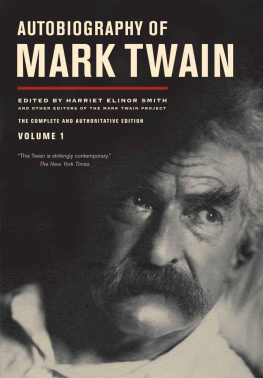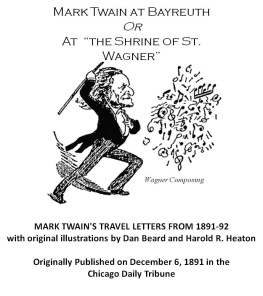Mark Twain - A Burlesque Autobiography
Here you can read online Mark Twain - A Burlesque Autobiography full text of the book (entire story) in english for free. Download pdf and epub, get meaning, cover and reviews about this ebook. genre: Humor / Prose. Description of the work, (preface) as well as reviews are available. Best literature library LitArk.com created for fans of good reading and offers a wide selection of genres:
Romance novel
Science fiction
Adventure
Detective
Science
History
Home and family
Prose
Art
Politics
Computer
Non-fiction
Religion
Business
Children
Humor
Choose a favorite category and find really read worthwhile books. Enjoy immersion in the world of imagination, feel the emotions of the characters or learn something new for yourself, make an fascinating discovery.

- Book:A Burlesque Autobiography
- Author:
- Genre:
- Rating:5 / 5
- Favourites:Add to favourites
- Your mark:
- 100
- 1
- 2
- 3
- 4
- 5
A Burlesque Autobiography: summary, description and annotation
We offer to read an annotation, description, summary or preface (depends on what the author of the book "A Burlesque Autobiography" wrote himself). If you haven't found the necessary information about the book — write in the comments, we will try to find it.
A Burlesque Autobiography — read online for free the complete book (whole text) full work
Below is the text of the book, divided by pages. System saving the place of the last page read, allows you to conveniently read the book "A Burlesque Autobiography" online for free, without having to search again every time where you left off. Put a bookmark, and you can go to the page where you finished reading at any time.
Font size:
Interval:
Bookmark:
A BURLESQUE AUTOBIOGRAPHY
by Mark Twain
BURLESQUE AUTOBIOGRAPHY.
Two or three persons having at different times intimated that if I would write an autobiography they would read it, when they got leisure, I yield at last to this frenzied public demand, and herewith tender my history:
Ours is a noble old house, and stretches a long way back into antiquity. The earliest ancestor the Twains have any record of was a friend of the family by the name of Higgins. This was in the eleventh century, when our people were living in Aberdeen, county of Cork, England. Why it is that our long line has ever since borne the maternal name (except when one of them now and then took a playful refuge in an alias to avert foolishness), instead of Higgins, is a mystery which none of us has ever felt much desire to stir. It is a kind of vague, pretty romance, and we leave it alone. All the old families do that way.
Arthour Twain was a man of considerable notea solicitor on the highway in William Rufus' time. At about the age of thirty he went to one of those fine old English places of resort called Newgate, to see about something, and never returned again. While there he died suddenly.
Augustus Twain, seems to have made something of a stir about the year 1160. He was as full of fun as he could be, and used to take his old sabre and sharpen it up, and get in a convenient place on a dark night, and stick it through people as they went by, to see them jump. He was a born humorist. But he got to going too far with it; and the first time he was found stripping one of these parties, the authorities removed one end of him, and put it up on a nice high place on Temple Bar, where it could contemplate the people and have a good time. He never liked any situation so much or stuck to it so long.
Then for the next two hundred years the family tree shows a succession of soldiersnoble, high-spirited fellows, who always went into battle singing; right behind the army, and always went out a-whooping, right ahead of it.
This is a scathing rebuke to old dead Froissart's poor witticism that our family tree never had but one limb to it, and that that one stuck out at right angles, and bore fruit winter, and summer.

OUR FAMILY TREE
Early in the fifteenth century we have Beau Twain, called "the Scholar." He wrote a beautiful, beautiful hand. And he could imitate anybody's hand so closely that it was enough to make a person laugh his head off to see it. He had infinite sport with his talent. But by and by he took a contract to break stone for a road, and the roughness of the work spoiled his hand. Still, he enjoyed life all the time he was in the stone business, which, with inconsiderable intervals, was some forty-two years. In fact, he died in harness. During all those long years he gave such satisfaction that he never was through with one contract a week till government gave him another. He was a perfect pet. And he was always a favorite with his fellow-artists, and was a conspicuous member of their benevolent secret society, called the Chain Gang. He always wore his hair short, had a preference for striped clothes, and died lamented by the government. He was a sore loss to his country. For he was so regular.
Some years later we have the illustrious John Morgan Twain. He came over to this country with Columbus in 1492, as a passenger. He appears to have been of a crusty, uncomfortable disposition. He complained of the food all the way over, and was always threatening to go ashore unless there was a change. He wanted fresh shad. Hardly a day passed over his head that he did not go idling about the ship with his nose in the air, sneering about the commander, and saying he did not believe Columbus knew where he was going to or had ever been there before. The memorable cry of "Land ho!" thrilled every heart in the ship but his. He gazed a while through a piece of smoked glass at the penciled line lying on the distant water, and then said: "Land be hanged,it's a raft!"
When this questionable passenger came on board the ship, he brought nothing with him but an old newspaper containing a handkerchief marked "B. G.," one cotton sock marked "L. W. C." one woollen one marked "D. F." and a night-shirt marked "O. M. R." And yet during the voyage he worried more about his "trunk," and gave himself more airs about it, than all the rest of the passengers put together.
If the ship was "down by the head," and would not steer, he would go and move his "trunk" farther aft, and then watch the effect. If the ship was "by the stern," he would suggest to Columbus to detail some men to "shift that baggage." In storms he had to be gagged, because his wailings about his "trunk" made it impossible for the men to hear the orders. The man does not appear to have been openly charged with any gravely unbecoming thing, but it is noted in the ship's log as a "curious circumstance" that albeit he brought his baggage on board the ship in a newspaper, he took it ashore in four trunks, a queensware crate, and a couple of champagne baskets. But when he came back insinuating in an insolent, swaggering way, that some of his things were missing, and was going to search the other passengers' baggage, it was too much, and they threw him overboard. They watched long and wonderingly for him to come up, but not even a bubble rose on the quietly ebbing tide. But while every one was most absorbed in gazing over the side, and the interest was momentarily increasing, it was observed with consternation that the vessel was adrift and the anchor cable hanging limp from the bow. Then in the ship's dimmed and ancient log we find this quaint note:
"In time it was discouvered yt ye troblesome passenger hadde
gonne downe and got ye anchor, and toke ye same and solde it to
ye dam sauvages from ye interior, saying yt he hadde founde it,
ye sonne of a ghun!"
Yet this ancestor had good and noble instincts, and it is with pride that we call to mind the fact that he was the first white person who ever interested himself in the work of elevating and civilizing our Indians. He built a commodious jail and put up a gallows, and to his dying day he claimed with satisfaction that he had had a more restraining and elevating influence on the Indians than any other reformer that ever labored among them. At this point the chronicle becomes less frank and chatty, and closes abruptly by saying that the old voyager went to see his gallows perform on the first white man ever hanged in America, and while there received injuries which terminated in his death.
The great grandson of the "Reformer" flourished in sixteen hundred and something, and was known in our annals as, "the old Admiral," though in history he had other titles. He was long in command of fleets of swift vessels, well armed and manned, and did great service in hurrying up merchantmen. Vessels which he followed and kept his eagle eye on, always made good fair time across the ocean. But if a ship still loitered in spite of all he could do, his indignation would grow till he could contain himself no longerand then he would take that ship home where he lived and, keep it there carefully, expecting the owners to come for it, but they never did. And he would try to get the idleness and sloth out of the sailors of that ship by compelling them to take invigorating exercise and a bath. He called it "walking a plank." All the pupils liked it. At any rate, they never found any fault with it after trying it. When the owners were late coming for their ships, the Admiral always burned them, so that the insurance money should not be lost. At last this fine old tar was cut down in the fulness of his years and honors. And to her dying day, his poor heart-broken widow believed that if he had been cut down fifteen minutes sooner he might have been resuscitated.
Font size:
Interval:
Bookmark:
Similar books «A Burlesque Autobiography»
Look at similar books to A Burlesque Autobiography. We have selected literature similar in name and meaning in the hope of providing readers with more options to find new, interesting, not yet read works.
Discussion, reviews of the book A Burlesque Autobiography and just readers' own opinions. Leave your comments, write what you think about the work, its meaning or the main characters. Specify what exactly you liked and what you didn't like, and why you think so.

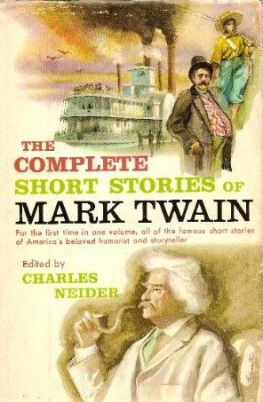

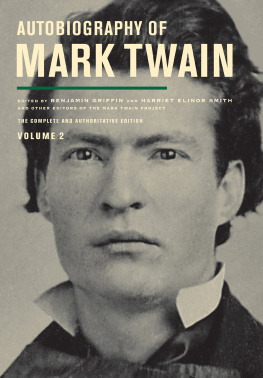

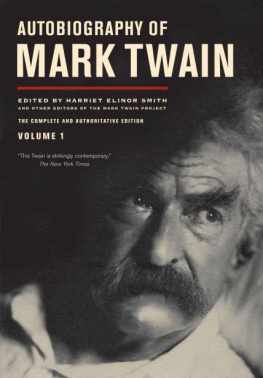
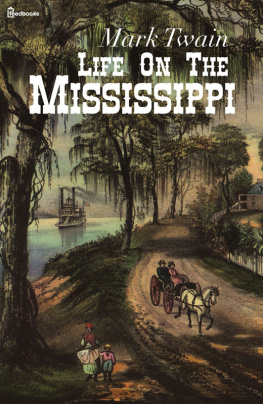
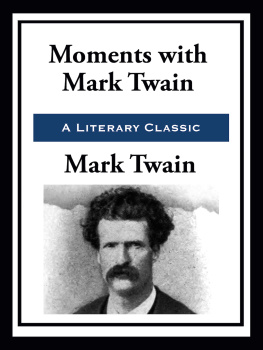
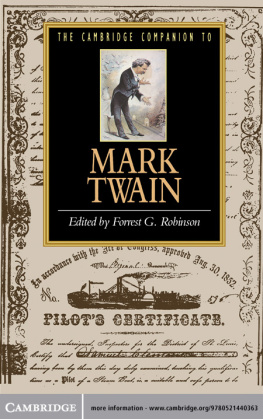
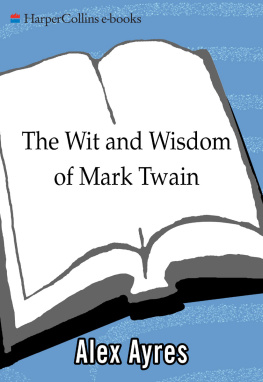
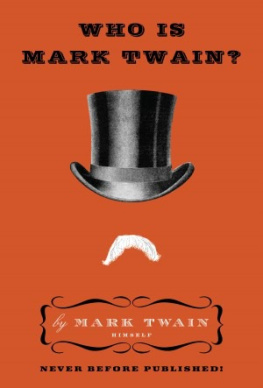
![Twain Mark - Autobiography of Mark Twain Vol. 1 / associate eds. Benjamin Griffin ... [et al.]](/uploads/posts/book/210276/thumbs/twain-mark-autobiography-of-mark-twain-vol-1.jpg)
